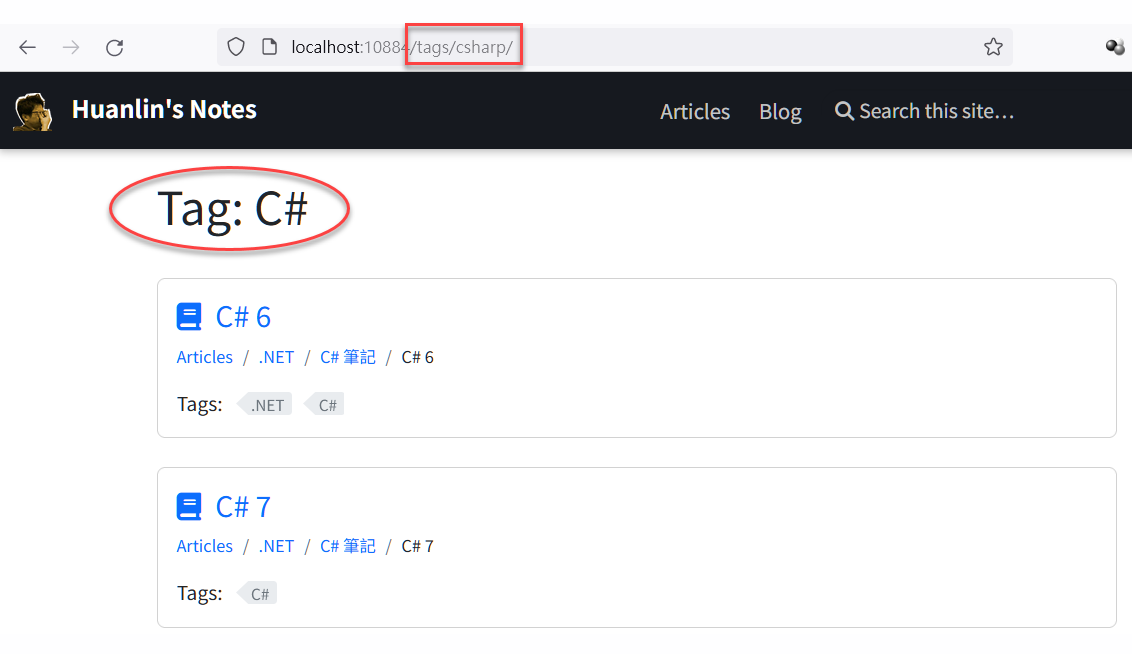Hugo Tip & Tricks
Special Characters in Tags
A tag list page will be inaccessible if there are special characters in the tag name. For example, the following frontmatter uses "C#" as a tag name:
---
title: "My C# Notes"
slug: "my-csharp-notes"
tag: ["C#"]
---
The link for the "C#" tag will be /tags/c#, which is inaccessible and the browser will return HTTP 404.
To solve this issue, use "csharp" as the tag name:
---
title: "My C# Notes"
slug: "my-csharp-notes"
tag: [csharp]
---
Then create a _index.md under /content/en/tags/csharp folder. Below is the content of the _index.md file:
---
title: "C#"
---
Note: The file name must be
_index.mdwith a leading_character. Usingindex.mdwill not solve this issue.
With the above setups, the Tag Cloud will display "C#" and the link will work as expected, shown as the screenshot below:

Click the C# tag and the browser will open /tags/csharp page:

Escaping Shortcodes
Sometimes I need to demonstrate how to use a shortcode in my article. Simply put the shortcode example in a markdown code block won't work because the shortcode will be interpreted and executed anyway.
The solution is to add a pair of /* and */ in both the beginning and end lines of the shortcode block. Here is an example:

It is rendered like this:
{{% admonition type=note title="This is a note" %}}
It's not who you are underneath, it's what you do that defines you.
{{% /admonition %}}
Show Recent Posts
The following code can be used to show recent 5 posts:
<h4>Recently added/updated posts</h4>
<div>
{{ $byLastMod := .Site.RegularPages.ByLastmod }}
{{ $recent := ($byLastMod | last 5).Reverse }}
<ul>
{{ range $recent }}
<li>
<a href="{{ .RelPermalink }}">{{ .LinkTitle }}</a>
({{ .Lastmod.Format "2006-01-02" }})
</li>
{{ end }}
</ul>
</div>
You can put them into a partial file, for example, if you're using Docsy theme, the partials/section-index.html might be a good choice.
See also: